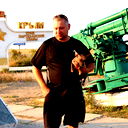Лингвистика
Классификация английских гласных звуков?
Не знаете, в интернете есть классификация по пунктам: 1) the position of the bulk of the tongue 2) the height of the raised part of the tongue 3) the position of the lips 4) the degree of tenseness 5) the stability of articulation 6) the length 7) the character of the end например: [i:] - front, high (close), unrounded (spread), tense, diphthongoid, long, unchecked нет так нет, сама понапишу, проблема студентов одна - "побыстрей бы")))
есть, вот правда на русском
http://www.native-english.ru/pronounce/classification
хотя это не то что вам точно надо,
это в учебнике фонетики есть, хотя не помню в каком, но у вас должен быть, если вы студентка)
http://www.native-english.ru/pronounce/classification
хотя это не то что вам точно надо,
это в учебнике фонетики есть, хотя не помню в каком, но у вас должен быть, если вы студентка)
Ох... ФОНЕТИКА... как "давно" это было! =) побыстрей никак, придется тетради с лекциями поднимать=))0
1 The position of the tongue. According to the horizontal movement Russian phoneticians distinguish five classes: 1) front; 2) front-retracted; 3) central; 4) back; 5) back-advanced.
British phoneticians do not single out the classes of front-retracted and back-advanced vowels. So both [i:] and are classed as front, and both [u:] and [Y] are classed as back
5 Stability of articulation. This principle is not singled out by British and American phoneticians. Thus, P. Roach writes: "British English (BBC accent) is generally described as having short vowels, long vowels and diphthongs". According to Russian scholars vowels are subdivided into: a) monophthongs (the tongue position is stable); b) diphthongs (it changes, that is the tongue moves from one position to another); c) diphthongoids (an intermediate case, when the change in the position is fairly weak).
7 Character of the vowel end. This quality depends on the kind of the articulatory transition from a vowel to a consonant. This transition (VC) is very closed in English unlike Russian. As a result all English short vowels are checked when stressed. The degree of checkness may vary and depends on the following consonants (+ voiceless - voiced - sonorant -).
British phoneticians do not single out the classes of front-retracted and back-advanced vowels. So both [i:] and are classed as front, and both [u:] and [Y] are classed as back
5 Stability of articulation. This principle is not singled out by British and American phoneticians. Thus, P. Roach writes: "British English (BBC accent) is generally described as having short vowels, long vowels and diphthongs". According to Russian scholars vowels are subdivided into: a) monophthongs (the tongue position is stable); b) diphthongs (it changes, that is the tongue moves from one position to another); c) diphthongoids (an intermediate case, when the change in the position is fairly weak).
7 Character of the vowel end. This quality depends on the kind of the articulatory transition from a vowel to a consonant. This transition (VC) is very closed in English unlike Russian. As a result all English short vowels are checked when stressed. The degree of checkness may vary and depends on the following consonants (+ voiceless - voiced - sonorant -).
Похожие вопросы
- Почему лингвисты враждебны к общей классификации согласных и гласных звуков речи?
- Как произносят гласные звуки? И как произносят согласные звуки? Почему звуки называются гласными и согласными ?
- Какие ЦВЕТА имеют ГЛАСНЫЕ ЗВУКИ? Если Й – чёрный, а О – белый.
- Что такое сонорные звуки обозначающие гласные звуки?
- "Понятие о сложных гласных звуках" - как ответить на этот вопрос? Матер в лекциях очень мало, в книге и интернете-ничего
- Чем различаются фарингализированные и простые гласные звуки? Можно привести какие-нибудь примеры?
- В американском английском глухие звуки произносятся с небольшим придыханием?
- Когда буквы Ь, Ъ (твёрдый и мягкий знаки) в древности были гласными, какие звуки они обозначали?
- "В древнерусском языке было 19 гласных". Из каких звуков они состояли? Сколько было гласных, двоегласных, троегласных?
- Есть ли в английском языке беглая гласная?

